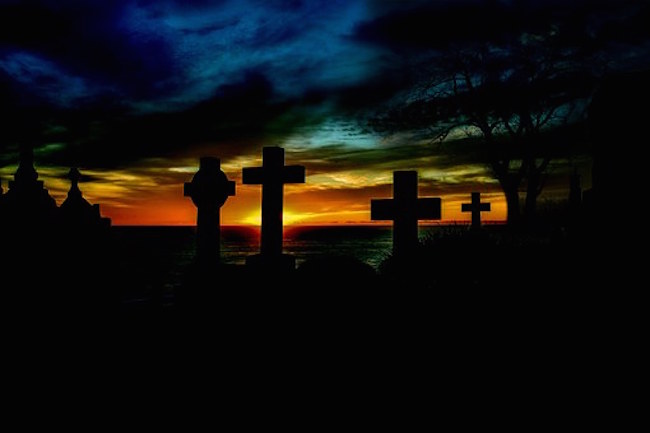Why Must We Die? BY Eddie Mercado for Core Christianity
“If we believe in Jesus as our Savior, why do we have to die?” This question came from the tender heart of my five-year-old near the end of family devotions one evening. I gave it my best try, pointing to the wages of sin as death (Rom. 6:23). But my son wasn’t the first to ask this question, nor was I the first to answer. As I dug deeper, I realized I should have said more. Over 450 years ago, the German theologian Zacharias Ursinus sought to provide a nuanced and more hopeful response to this question in the Heidelberg Catechism. Lord’s Day 16, Q&A 42 says, “Q: Since Christ has died for us, why do we still have to die? A: Our death does not pay the debt of our sins. Rather, it puts an end to our sinning and is our entrance into eternal life.”
The Heidelberg Catechism on Death for the Christian
The death of the Christian isn’t an ultimately condemning death; it’s a death that leads to life. In his commentary on the Heidelberg Catechism, Ursinus provides four reasons why the Christian still dies: 1. to admonish our remaining sin, 2. to admonish the evilness of sin itself, 3. to abolish our remaining sin, and 4. to provide a path to eternal life.[1]
We’re often inclined to think about the necessity of death exclusively in negative terms, but the catechism provides a helpful corrective to this response on death for the Christian. In what comes out to be a radical, even triumphant reversal in the life of the Christian, our death doesn’t mean we’re under the wrath of God, but it’s the means by which we experience eternal life with Christ. For the one who is found in the Lord Jesus, our natural enemy (death) is used by God to complete his purpose of conforming us to the image of the Son, an image that’s sinless, glorious, and eternal.




